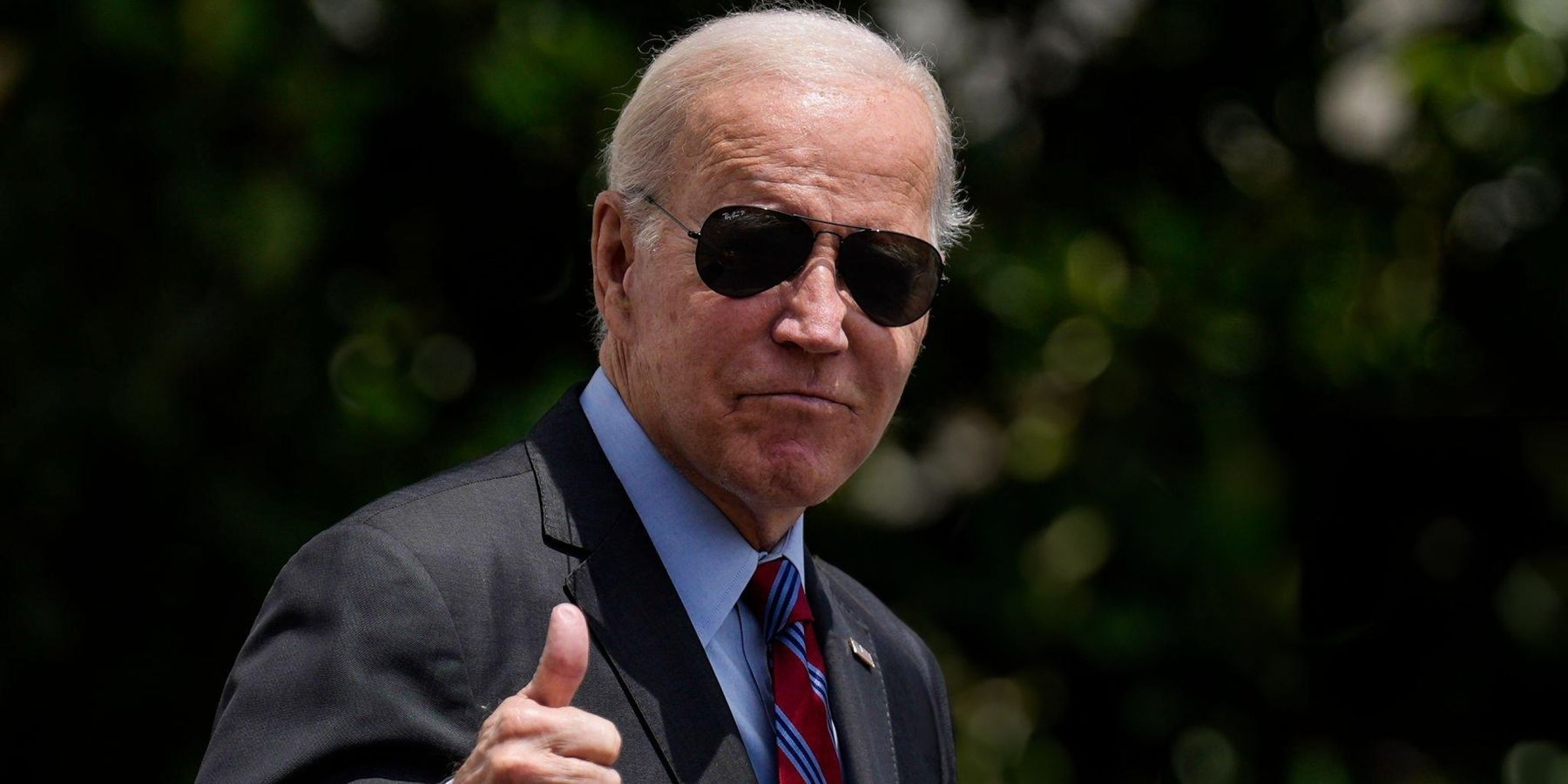Freed of the constraints of the presidential campaign, the Biden administration can use the next two months to recalibrate U.S. policy abroad, clean up several messes, and — maybe — rehabilitate the reputation of his team and our country.
Here’s a bucket list of executive actions the Biden administration should take to leave the United States, the world, and its legacy in a better place.
Most immediately, demand a ceasefire and the withdrawal of the Israeli Defense Forces from southern Lebanon, Gaza and Palestinian Authority-administered areas of the West Bank, and an end to all aerial bombardment in order to obtain the release of hostages and protect the lives of U.S. citizens and others in the region. Use this ceasefire to test whether the Houthis, Hezbollah, and Hamas halt their attacks on Israel.
If Israel refuses, announce the immediate cessation of U.S. arms shipments and aid flows other than those intended for the Iron Dome shield. This move would follow the October 13 letter from Secretary of Defense Austin and Secretary of State Blinken to their Israeli counterparts warning them that if Israel did not comply with its obligations to allow U.S.-supported humanitarian aid into Gaza within 30 days, there would be “implications” pursuant to U.S. law. The 30 days are up as of today, and not one of the conditions has been met.
It’s way past time to end U.S. complicity in the slaughter and starvation of tens of thousands of innocents.
Also clearly reiterate U.S. opposition to the continued expansion of settlements in the West Bank and to construction of new settlements in Gaza. Announce increased U.S. sanctions on individuals and entities complicit in settler violence or threats against Palestinians in the West Bank.
To de-escalate the spiral of violence across the Middle East, reach an interim deal with the new Iranian government on its nuclear program. At a minimum, revive the informal understanding worked on during the summer of 2023. This will hopefully serve as a break on further retaliation by Iran against Israel and offer an opening for further diplomacy by the Trump administration.
Draw down U.S. forces from Iraq. The United States does not need to maintain thousands of sitting-duck troops in Iraq to deter the return of ISIS. A plan for gradual withdrawal through 2026 has been announced. Recommit to the implementation of this plan and take the next step in transferring to the Iraqi government full responsibility for its national security.
Do not escalate U.S. support for the war in Ukraine and refrain from taking any action that could undermine prospects for a negotiated settlement. As Richard Haass and NYT national security reporters are now acknowledging, and my colleagues at Quincy Institute have long maintained, time is not on Ukraine’s side in the war. Russian forces are advancing, and this winter is going to be hellish unless the fighting is brought to an end and Ukraine’s electrical grid is repaired.
The war is also destabilizing politics in Europe and beyond. The Biden team should consult with the incoming administration on what assistance Ukraine needs, to be paired with outreach to incentivize a positive Russian response to bring both sides to the negotiating table.
End comprehensive sanctions on Venezuela. Hundreds of thousands of people are emigrating from Cuba and Venezuela, where U.S. sanctions have helped make life unbearable for large parts of the population. Instead of achieving the desired policy outcomes, counterproductive sanctions have hurt people and forced many to make the difficult decision to leave their homeland for the United States.
Take steps to normalize relations with Cuba. Remove Cuba from the U.S. list of State Sponsors of Terrorism; enable more normal travel by allowing cruises, use of hotels, independent people-to-people trips and performances; and suspend Title III of the Helms-Burton law, as President Obama did, to prevent nuisance lawsuits that interfere with U.S. investment and business in Cuba.
In his waning days in office, Trump imposed comprehensive sanctions on Cuba; Biden can undo them — better late than never. This is particularly pressing given public concern over unauthorized immigration to the United States.
Take additional steps to close the Guantanamo Bay detention camp by overriding the decision by Secretary of Defense Austin to pursue further court action to reject the military commission plea agreement he authorized with the 9/11 masterminds. Put an end to the 22-year-long global public relations problem that Guantanamo has posed by escalating efforts to find third-country homes for those remaining prisoners who have never been charged.
Take steps to normalize relations with Afghanistan. Ending the U.S. war in Afghanistan was courageous and correct. Now President Biden needs to lead the way toward restoring diplomatic relations by empowering the Afghanistan Affairs Unit in Doha to proactively engage senior Taliban figures and set a positive precedent by sending a U.S. diplomat to meet with the Taliban in Kabul. The Fulbright program for Afghans should be reinstated, and processing of the remaining special immigrant visa (SIV) holders located outside the United States should be fast-tracked.
Reinstate the Fulbright and Mutual Educational and Cultural Exchange programs with China/Hong Kong. We need to know more, not less, about China. President Biden should restore these important programs that Trump killed with a stroke of his pen.
President Biden has an extraordinary opportunity in this period to act on his conscience, free of domestic political constraints. For the good of the country and its reputation abroad, his historical legacy, and those who have suffered from destructive U.S. policies, I hope he will act with alacrity to check them off of his bucket list.
- How Biden can bypass Congress on Ukraine aid ›
- Israel using US election to take free hand against Gaza, Lebanon ›
- If Biden can't stand up to Saudi Arabia, then Congress should, and now ›
















